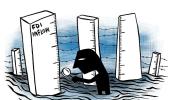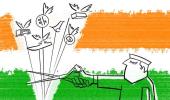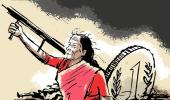Accelerating inequality, the market dominance of tech platforms and remote working are likely to be the longest-lasting legacies of the COVID-19 crisis, the WEF said in a report on Monday.

Releasing its Chief Economists Outlook report during the online Davos Agenda Summit, the WEF said that beyond managing the pandemic and vaccine rollout, these trends could shape a new era of fiscal, monetary, and competition policy.
Deglobalisation is seen as the least likely of the current trends to continue in the longer term; particularly as international coordination is key to resolving global challenges such as vaccine manufacturing and distribution.
The report, compiled after consultations with leading chief economists from the public and private sectors, showed they are impressed at the speed and scale of fiscal policy measures taken in the wake of the pandemic.
However, as the global vaccination campaign picks up pace, they see the second half of 2021 as the optimal time to begin transitioning from general emergency spending to more targeted spending on future growth sectors.
A majority suggests that taking action to pay down the significant national debts accumulated in the past year can wait until 2024 or beyond.
With central bank financing of public debt through quantitative easing now at the core of monetary policy in response to the crisis, chief economists believe this could lead to less central bank independence over time.
Many also suggested that central banks should be pursuing environmental objectives directly through their asset purchases, which would represent a significant departure from past practice.
Most chief economists expect a brighter outlook as the vaccine helps accelerate recovery, and as a new US administration contributes to tackling short-and long-term challenges, both domestically and globally, through revived multilateral institutions.
However, most of those surveyed see virus mutations as the biggest risk for 2021, slowing efforts to contain the pandemic and leading to new lockdowns.
Another concern relates to poorly calibrated policy responses that risk failing to differentiate between the deep structural impact of the pandemic on some sectors and the temporary halting of activity in other sectors.
"This report makes clear that precisely calibrated and coordinated fiscal, monetary, and competition policy hold the key to global economic recovery and transformation.
“As the roll-out of vaccines picks up pace, there won't be a better time for governments to work together and invest in a fair transition to a greener, more inclusive economy,” WEF managing director Saadia Zahidi said.
Photograph: Lindsey Wasson/Reuters












 © 2025
© 2025